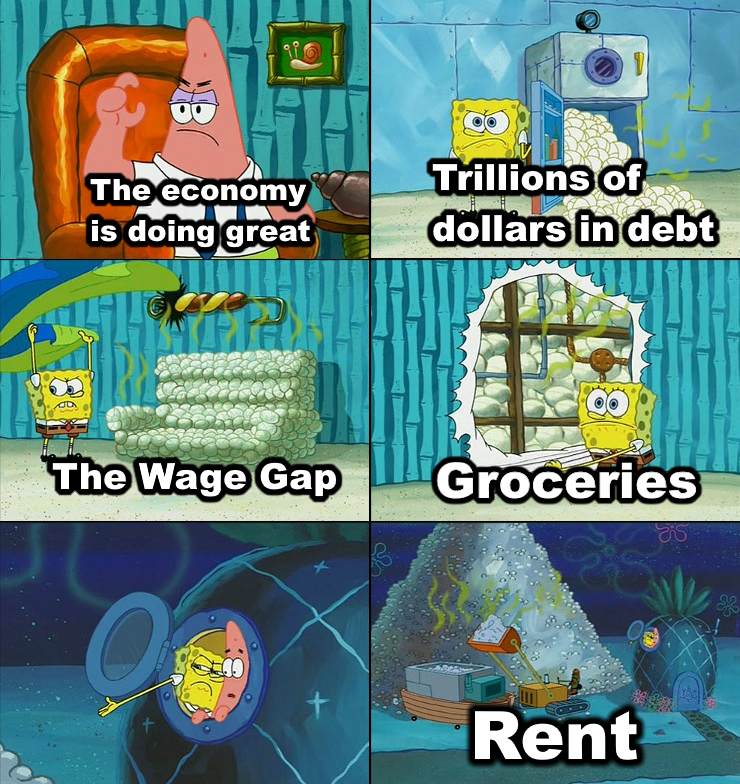this post was submitted on 19 Jun 2024
479 points (91.8% liked)
memes
18231 readers
3351 users here now
Community rules
1. Be civil
No trolling, bigotry or other insulting / annoying behaviour
2. No politics
This is non-politics community. For political memes please go to !politicalmemes@lemmy.world
3. No recent reposts
Check for reposts when posting a meme, you can only repost after 1 month
4. No bots
No bots without the express approval of the mods or the admins
5. No Spam/Ads/AI Slop
No advertisements or spam. This is an instance rule and the only way to live. We also consider AI slop to be spam in this community and is subject to removal.
A collection of some classic Lemmy memes for your enjoyment
Sister communities
- !tenforward@lemmy.world : Star Trek memes, chat and shitposts
- !lemmyshitpost@lemmy.world : Lemmy Shitposts, anything and everything goes.
- !linuxmemes@lemmy.world : Linux themed memes
- !comicstrips@lemmy.world : for those who love comic stories.
founded 2 years ago
MODERATORS
you are viewing a single comment's thread
view the rest of the comments
view the rest of the comments

Heyo, national economies need to run at a deficit. The amount of debt needs to be maintained but running a negative is a good thing because the interest payments become stable capital injection. These regular, anticipated payments build the confidence of very conservative money managers to spend their own money. It's trickle down but in a way that helps increase the likelihood of money being spent, which is basically the GDP. And the speed of people spending money in the system is a metric that central banks use to set interest rates.
It's all connected and that's why running a deficit, a (relatively) small one, is a good thing. Nations don't use checkbook accounting.
At this point, I just use someone complaining about the national debt as a secret code for them saying “I have zero idea how economics works”.
how much of this still applies when the debt is as big as the United State's current debt? (genuine question)
It applies more. If you borrow $1000 and by the time you pay it back (including interest) you've paid $1500, but that would have had the buying power of $2000 today, you've made a pretty good deal. If you do that with a trillion dollars, you've made a great deal.
National Debt is a weird metric. For the US, the biggest foreign owners are Japan having ~4% and China having ~5% of the debt. The huge majority of the debt is within the US, either to individuals, businesses, or the government itself.
Plus there's an old adage by J Paul Getty, "If you own the bank $100, that's your problem. If you owe the bank $100 million, that's the banks problem."
Similarly everyone you owe money to is now invested in your success.
I never said we should have zero debt, that's a strawman. Most economist recommend a moderate amount of debt due to various positive effects (some of which you mention). So the real disagreement comes here:
The implication being that you think the U.S. has a (relatively) small amount of debt. Now, I am willing to be convinced otherwise, but I do not think that the U.S. currently has a small amount of debt. Our debt to GDP ratio is higher than other developed nations, which is concerning.
I do concede that we aren't in danger of a debt crisis on the scale of Greece or Sri Lanka. But ~$34 Trillion in debt needs to be part of the discussion when we keep praising the economy.